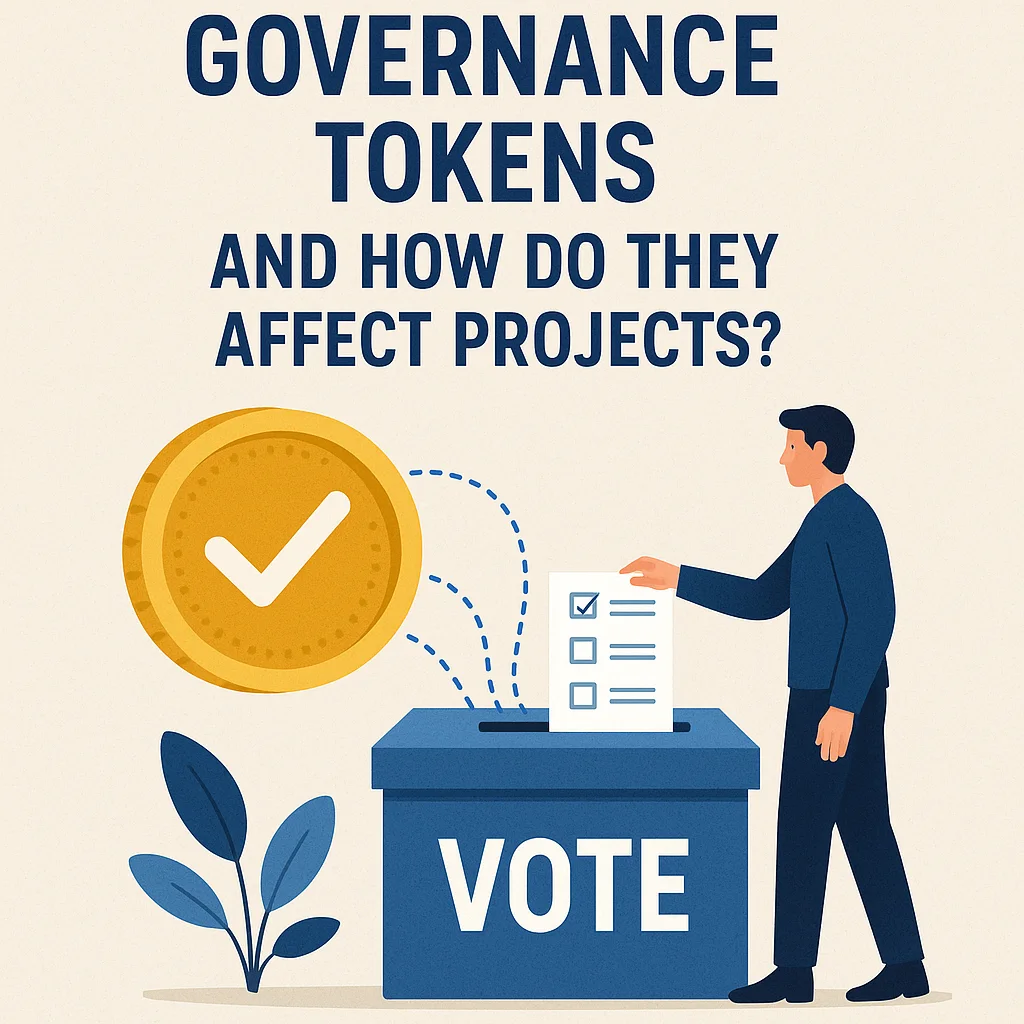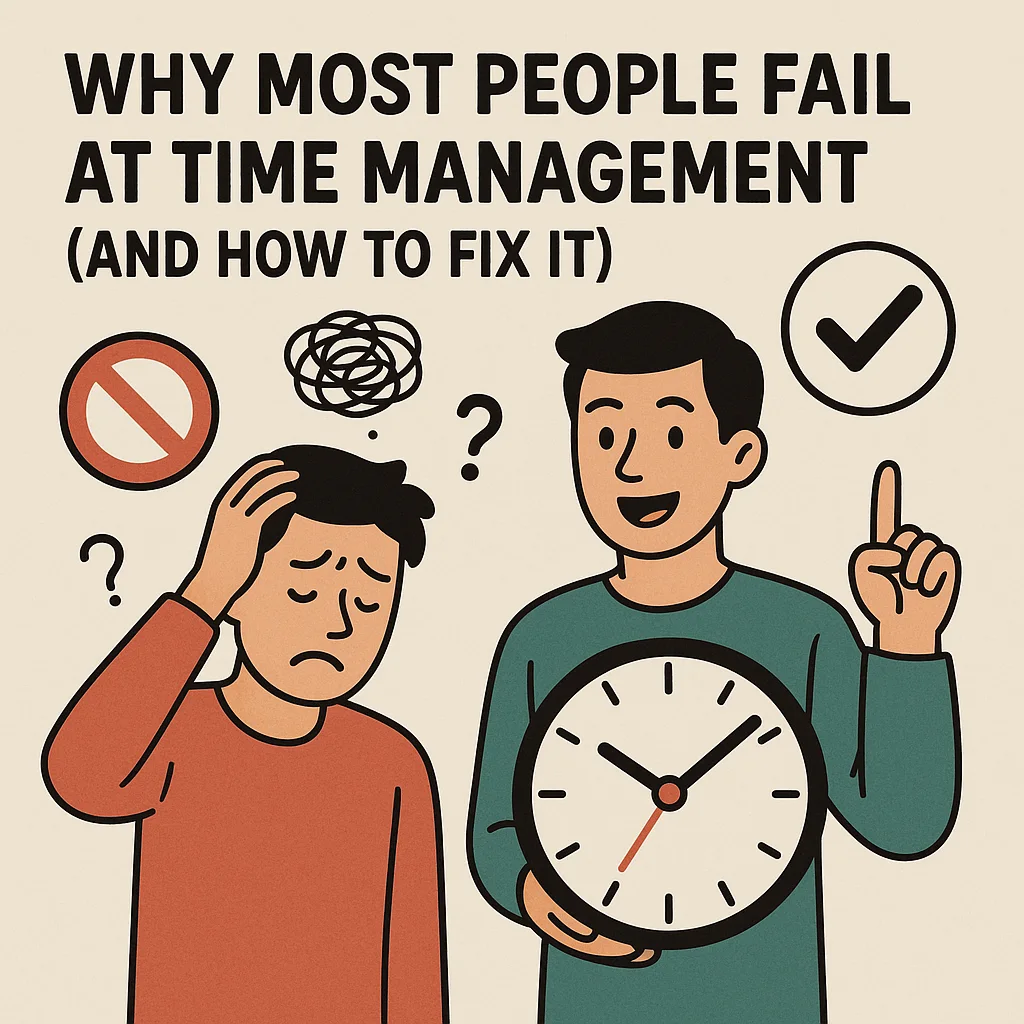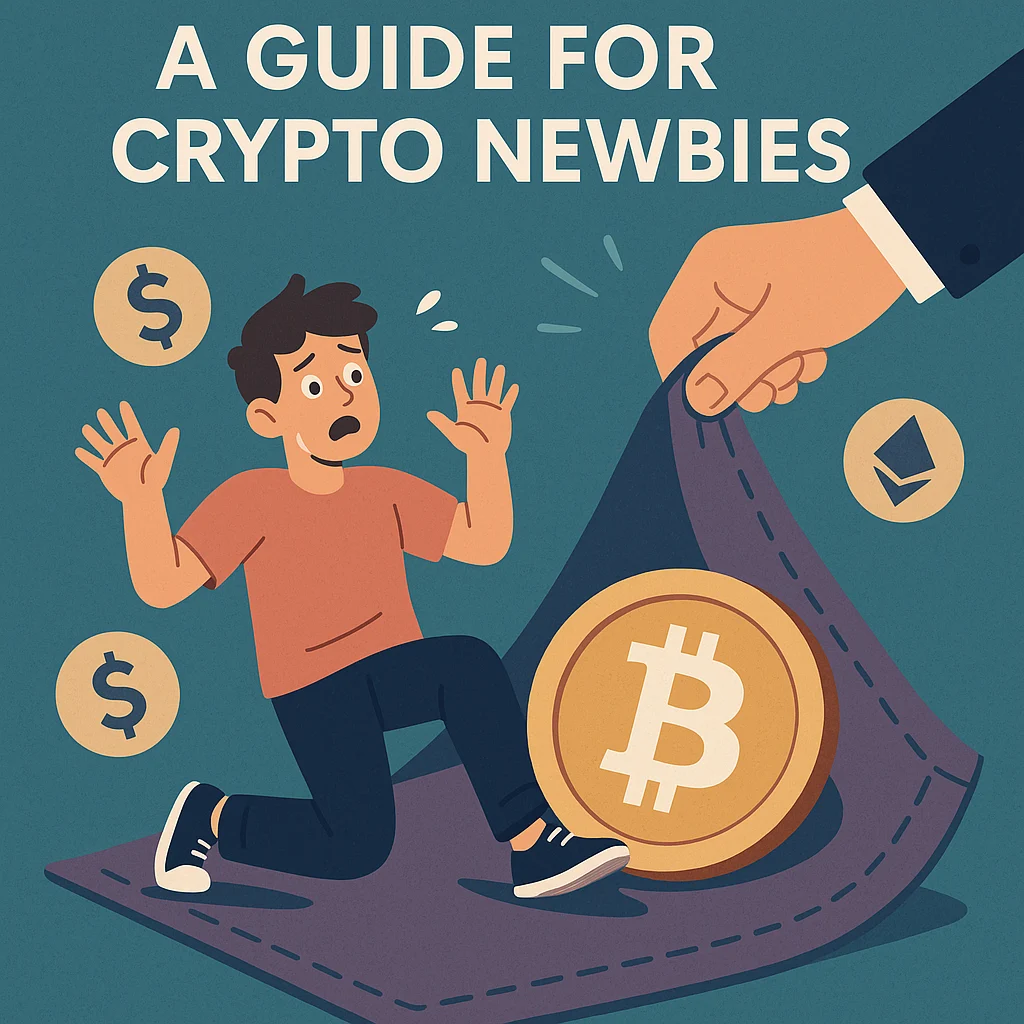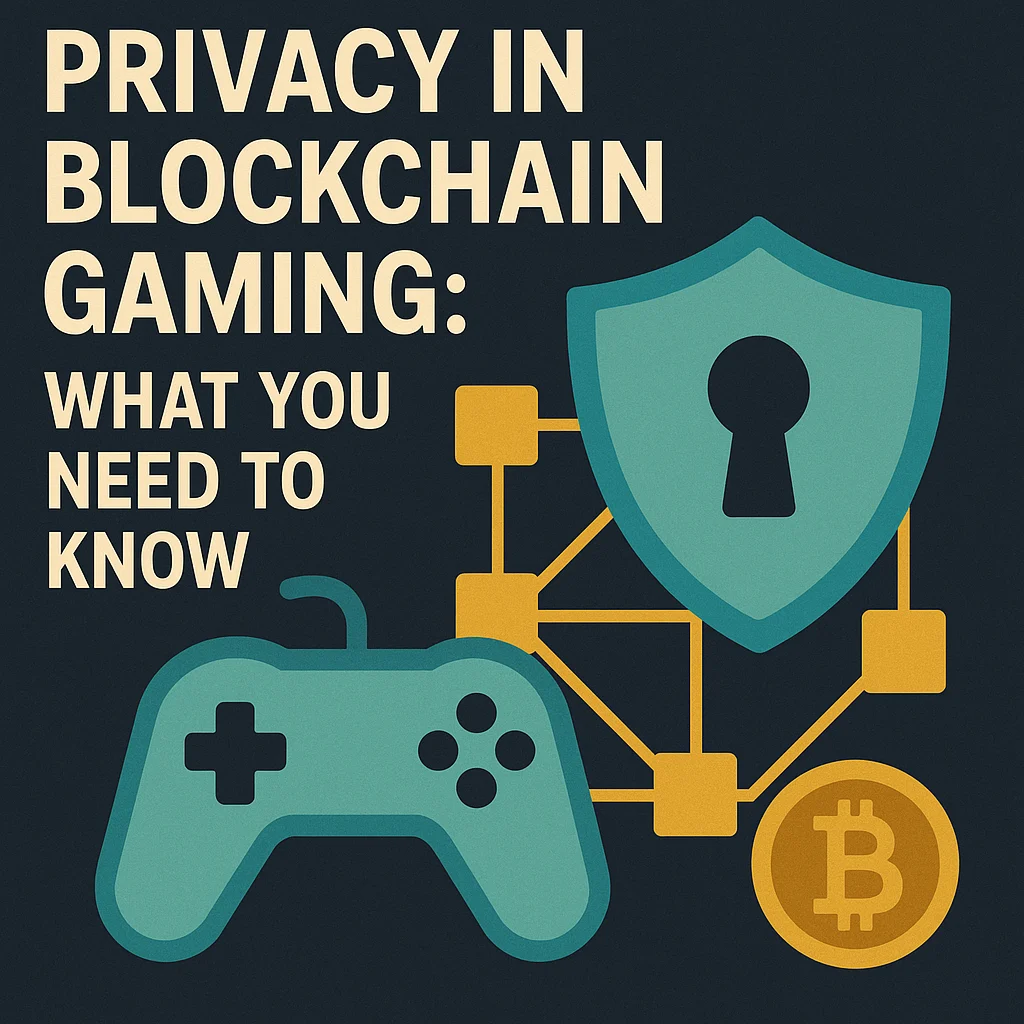Power is moving from centralized authorities to community-driven ecosystems in the quickly changing world of cryptocurrencies and decentralized finance (DeFi). Governance tokens, a type of digital asset that grants holders the ability to vote on important decisions within blockchain projects, are at the center of this shift. However, what are governance tokens exactly, and how do they impact the dynamics, growth, and direction of the projects that issue them?
We'll look at the definition of governance tokens, their operation, the principles of decentralized governance, and their wider effects on blockchain ecosystems and projects in this blog.
What Is a Governance Token?
One kind of cryptocurrency that allows its owners to take part in a decentralized project or protocol's decision-making process is called a governance token. Governance tokens allow a community to suggest, discuss, and vote on platform changes without depending on a centralized team or board of directors.
Key Features of Governance Tokens:
-
Voting Rights: Decide on proposals such as protocol upgrades, treasury usage, or fee structures.
-
Decentralized Control: Enable distributed governance by a community rather than a centralized team.
-
Stakeholder Incentives: Often used to reward users and contributors.
-
Transparency: All votes and changes are recorded on-chain.
DAOs (Decentralized Autonomous Organizations) and many DeFi protocols, in which users collectively decide the platform's future, are built on governance tokens.
How Do Governance Tokens Work?
On blockchain networks like Ethereum, Solana, or Avalanche, governance tokens function via smart contracts. Every project with governance capabilities usually has the following characteristics:
1. Proposal Mechanism
Token holders can submit proposals that suggest changes to the protocol. These might involve:
-
Changing fees
-
Launching a new feature
-
Allocating funds from a treasury
-
Modifying tokenomics
2. Voting Process
Holders of governance tokens vote on proposals after they are submitted. The quantity of tokens held or staked is frequently correlated with voting power.
While some projects employ delegation, which enables token holders to assign their vote to reliable representatives, others use quadratic voting to lessen the influence of whales.
3. Execution
Depending on how decentralized the project is, a proposal that is accepted is either carried out by the core contributors or automatically implemented via smart contract.
Examples of Governance Tokens in Action
Let’s look at real-world use cases to understand how governance tokens influence project operations:
1. Uniswap (UNI)
-
UNI token holders govern the Uniswap protocol.
-
They have the power to vote on developer fund allocations, liquidity incentives, and fee structure modifications.
-
In 2024, the community voted to activate a fee switch that allocates part of trading fees to token holders.
2. Compound (COMP)
-
COMP token holders manage parameters like collateral factors, interest rates, and supported assets.
-
They also decide how the treasury funds are distributed.
3. MakerDAO (MKR)
-
The Maker Protocol, which underpins the DAI stablecoin, is governed by MKR tokens.
-
Holders have a say in stability fees, risk criteria, and collateral onboarding.
4. Aave (AAVE)
-
Listing new assets, approving grants, and modifying loan-to-value ratios are all examples of governance.
-
Aave has developed into a multi-chain lending protocol thanks to community involvement.
Benefits of Governance Tokens
Governance tokens bring several advantages to blockchain projects and their communities:
1. Decentralization
Without depending on a single founder or authority, projects can change over time. Particularly in permissionless financial applications, this increases trust.
2. Community Engagement
If token holders have a say in how a project develops, they are more likely to participate and make contributions.
3. Transparency
On-chain, every governance action, including votes, proposals, and results, is publicly documented.
4. Sustainability
Tokens for governance keep projects flexible. Communities can respond to market conditions or update outmoded parameters by voting.
5. Alignment of Incentives
Because they have a stake in the project's long-term success, users who own governance tokens may make more deliberate and long-lasting choices.
Risks and Challenges of Governance Tokens
Despite their promise, governance tokens also introduce challenges:
1. Whale Dominance
Large holders can dominate votes, leading to plutocratic systems where wealthy participants control decisions.
2. Low Participation
Apathy and governance attacks result from the large number of token holders who do not cast ballots. Decisions may become skewed and lose legitimacy as a result.
3. Governance Attacks
Tokens could be amassed by bad actors in order to approve backdoor code or drain treasuries, among other malicious proposals.
4. Coordination Complexity
Decentralized communities might find it difficult to come to an agreement or react swiftly to dangers.
5. Legal Uncertainty
Governance tokens may be considered securities in some jurisdictions, subjecting them to regulatory scrutiny.
DAO Governance and Governance Tokens
DAOs, which function without centralized leadership, are linked to the majority of governance tokens. With the DAO model, token owners can control:
-
Budget allocation
-
Community development funds
-
Protocol upgrades
-
Treasury management
Prominent DAOs include:
-
Aragon: A toolkit for building DAOs
-
Snapshot: A popular off-chain voting platform used by hundreds of DAOs
-
GnosisDAO: A governance platform for the Gnosis ecosystem
DAOs represent a new form of governance that is transparent, inclusive, and censorship-resistant.
Governance Tokenomics: Supply, Incentives, and Use
1. Token Distribution
Governance tokens may be distributed through:
-
Airdrops
-
Liquidity mining
-
Contributor rewards
-
Venture capital allocations
2. Inflation or Deflation
While some tokens employ inflationary models to fund treasuries or encourage participation, others have limited supply.
3. Staking Mechanisms
Projects may require tokens to be staked for vote eligibility, adding economic weight to decisions.
4. Utility Beyond Governance
Some governance tokens offer additional benefits:
-
Staking rewards
-
Fee discounts
-
Access to exclusive services or communities
The Future of Governance Tokens
The development of governance tokens is closely linked to Web3 and decentralized finance maturity. The following are some new trends:
1. Meta-Governance
DAOs, such as Curve or Balancer, have influence outside of their immediate ecosystem because they hold governance tokens of other projects.
2. Reputation-Based Voting
Reputation systems and governance tokens work together to reward consistent contributors and lessen the power of whales.
3. Governance as a Service
Through dashboards, analytics, and tooling, platforms such as Tally, Aragon, and Snapshot are increasing the accessibility of DAO governance.
4. Cross-Chain Governance
Cross-chain governance models will make decisions across multiple Layer 1s and Layer 2s possible as multi-chain ecosystems expand.
Real-World Implications
The way a project structures its governance model can significantly influence:
-
Token valuation
-
Community trust
-
Speed of innovation
-
Regulatory compliance
-
Project longevity
Strong ecosystems are frequently correlated with strong governance. For instance, responsive communities and active governance have helped Uniswap, Aave, and MakerDAO maintain their dominance in DeFi.
Final Thoughts
In blockchain-based ecosystems, governance tokens are revolutionizing the decision-making process. These tokens allow for a future in which communities, not businesses, direct innovation by transferring control to users and stakeholders.
Decentralization is not a panacea, though. Communities must actively participate, create equitable voting procedures, and prevent manipulation if governance tokens are to be genuinely effective.
Ultimately, governance tokens provide a compelling window into a user-owned, democratic internet—Web3 as it was intended to be.




